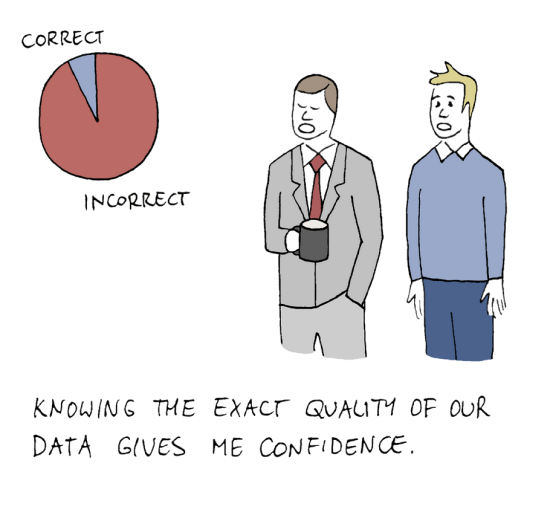By implementation type
Dataedo provides powerful tools for understanding and documenting data across various use cases, improving data accessibility, collaboration, and governance. Below are key scenarios where Dataedo adds value.
BI teams
Business Intelligence teams often struggle to find and understand the right data amidst complex schemas and disconnected systems. Time spent navigating these challenges takes away from their core tasks like analysis and reporting.
Dataedo empowers BI teams by documenting schemas, clarifying relationships, and centralizing data insights, enabling them to focus on delivering impactful analyses.
- Improved data understanding across sources like data warehouses, CRMs, ERPs, and applications.
- Increased productivity.
- Faster onboarding for new team members.
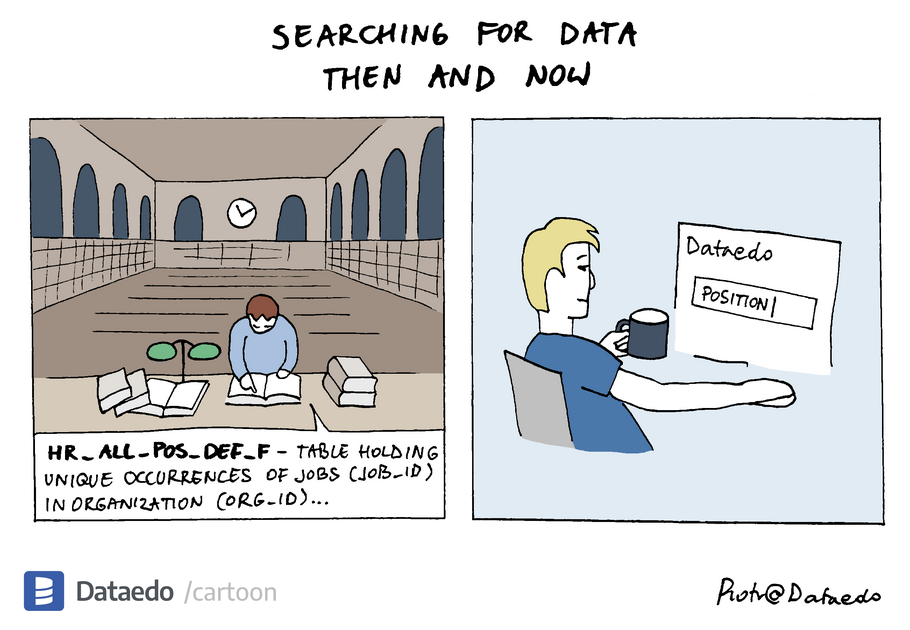
Self-service BI
Self-service analytics promises to make data accessible to non-technical users, but without proper context, understanding data elements remains a significant hurdle. This gap can hinder effective decision-making.
Dataedo enriches self-service BI by providing metadata—detailing meaning, purpose, and quality—alongside collaboration tools that connect users with experts in their organization.
- Simplified data discovery.
- Better understanding of data.
- Collaboration with data experts within the organization.

Data warehousing
Data warehouses demand significant investment in design, development, and maintenance. Yet, their potential is often underutilized because users lack visibility into what data exists, where it originates, or how it's calculated.
Dataedo unlocks the full value of data warehouses by documenting data structures, origins, and transformations, making data more discoverable and actionable.
- Improved documentation and data discoverability.
- Increased trust in data.
- Maximized ROI from the data warehouse.
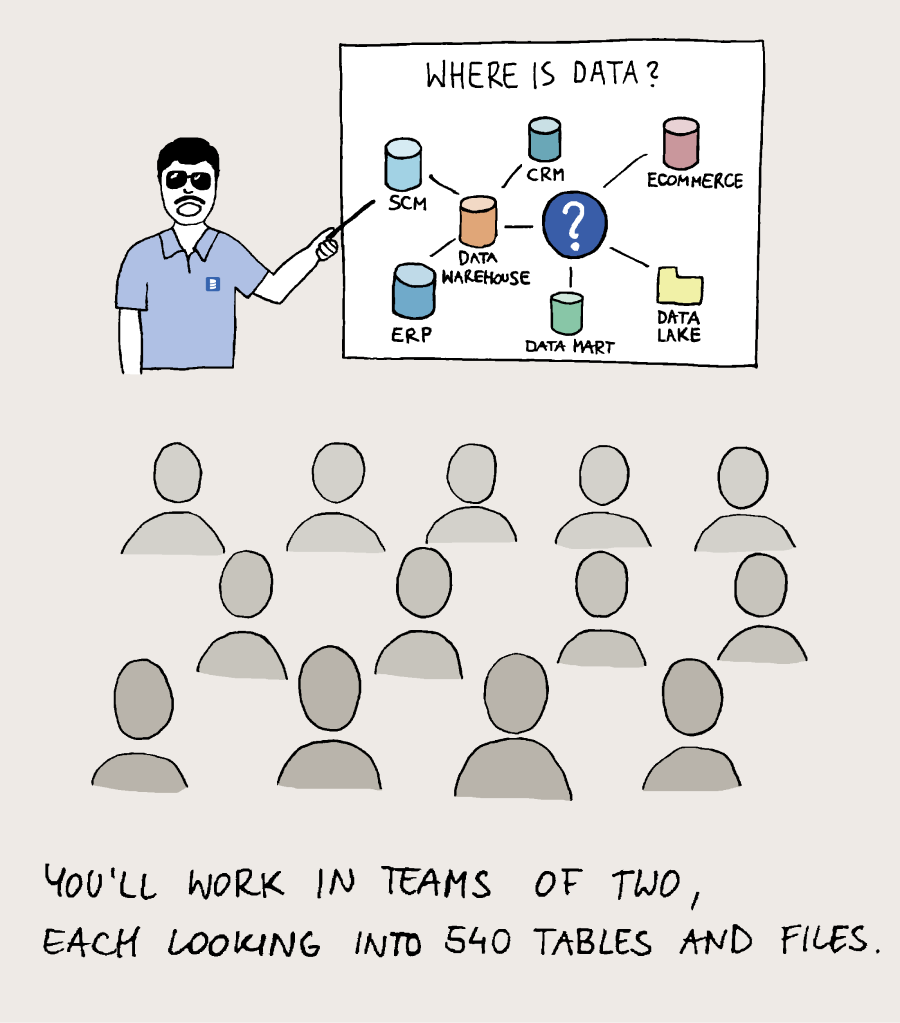
Data lakes
Data lakes, which store vast amounts of unstructured and semi-structured data, often become chaotic and difficult to navigate without governance. Finding relevant data and understanding its structure can be daunting.
Dataedo brings order to data lakes by discovering and cataloging semi-structured data, documenting objects and fields, and creating searchable, user-friendly web documentation.
- Better data governance.
- Searchable, browsable documentation.
- Structured data discovery in formats like JSON, CSV, and XML.
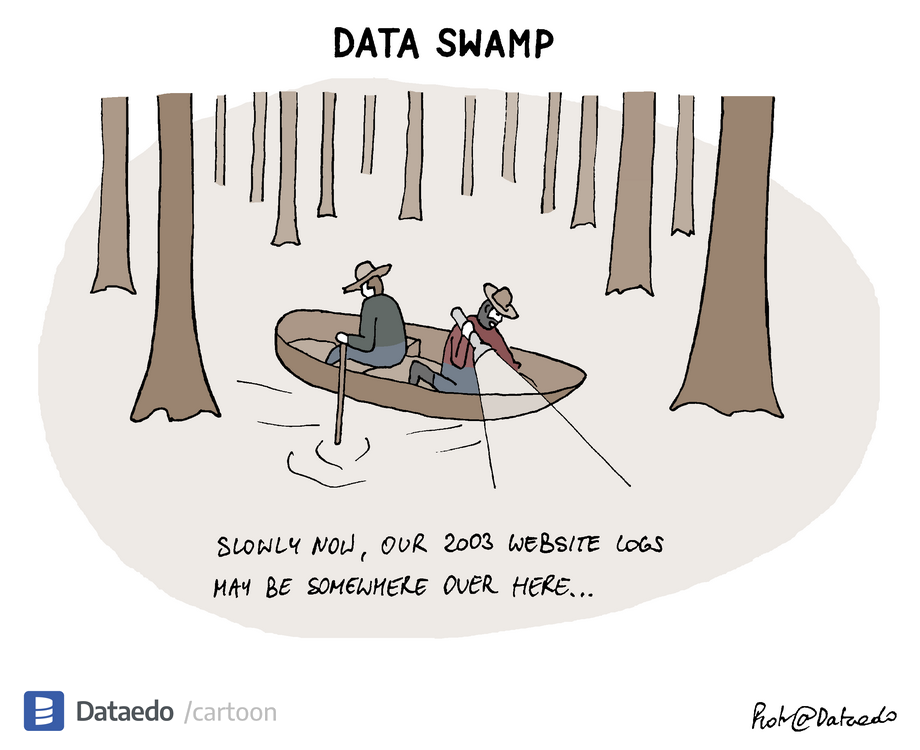
Metadata management
As database schemas evolve during development, keeping teams aligned on schema changes becomes a challenge. Missing or outdated documentation slows development and increases errors.
Dataedo facilitates collaboration by enabling teams to document schemas and share them as interactive HTML documentation, keeping everyone on the same page.
- Clear, up-to-date view of the database schema.
- Tracking schema changes to stay informed.
- Easier scaling of development teams.
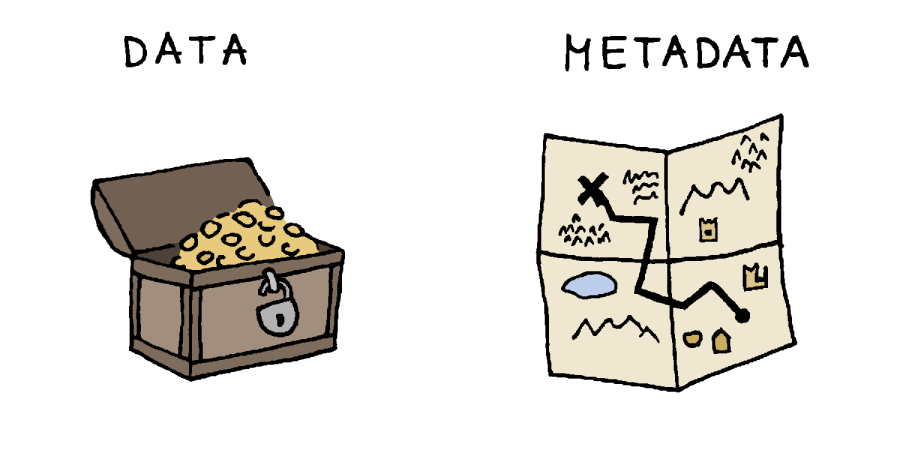
Data governance
Effective data governance requires clear policies and tools to manage metadata, data quality, and ownership. Without these, organizations struggle to extract value from their data assets.
Dataedo supports governance initiatives by providing a platform for documenting metadata, defining ownership, and improving data quality, helping organizations maximize data value.
- Simplified creation and curation of data definitions and metadata.
- Improved discoverability and usability of data.
- Collaboration across the organization through shared documentation.

Data protection & compliance
Regulations like GDPR and CCPA mandate strict controls over sensitive data, leaving organizations struggling to identify and classify personal data across systems.
Dataedo simplifies compliance by enabling organizations to inventory sensitive data, classify it, and document storage locations, ensuring readiness for audits and regulatory requirements.
- Inventory and classification of sensitive data.
- Enhanced awareness of data protection requirements.

Legacy applications
Legacy systems often become convoluted over years of undocumented changes, making further development or maintenance risky and inefficient.
Dataedo helps untangle legacy systems by reverse-engineering schemas, documenting components, and providing clear visualizations, empowering teams to refactor and modernize applications.
- Reverse-engineering capabilities for documenting legacy databases.
- Organized system inventory and documentation.
- Ability to break down complex systems into manageable modules.

Development outsourcing
Outsourcing development often creates a dependency on external vendors, risking knowledge lock-in and limited control over future updates or migrations.
Dataedo mitigates these risks by ensuring comprehensive documentation of outsourced code and databases, enabling seamless transitions to new teams or vendors.
- Mitigates vendor lock-in.
- Facilitates project transfer to new teams or vendors.
- Adds value through documentation.
- Reduces friction in client relationships by facilitating project handover.

Data quality
As organizations collect data from multiple sources and it moves through complex systems, inconsistencies and errors often creep in. Teams struggle to trust the data they rely on for critical decisions, leading to inefficiencies and missed opportunities. Without a clear way to measure and enforce data quality, ensuring accuracy and consistency becomes an uphill battle.
Dataedo solves this by providing a structured approach to define, monitor, and maintain high data quality, restoring confidence and unlocking the full potential of your data.
- Ensures your data is accurate, consistent, and reliable.
- Supports confident decision-making by minimizing errors.
- Empowers organizations to maintain high standards tailored to their needs.
